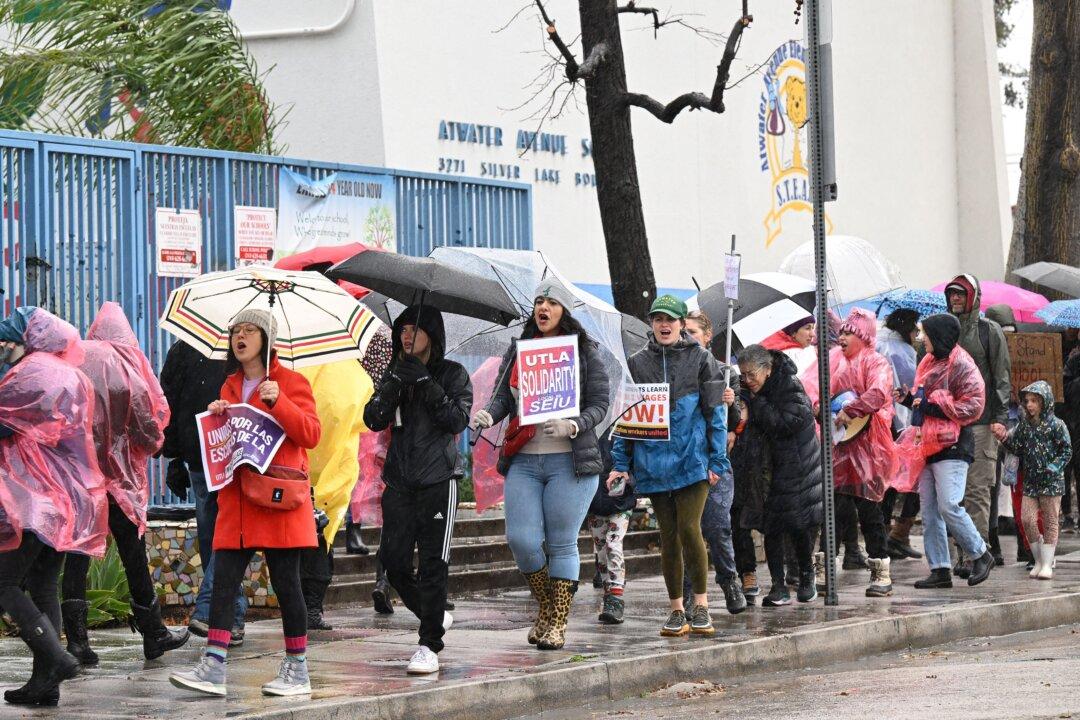All Los Angeles Unified School District’s (LAUSD) schools closed March 21 as the district’s two unions kicked off a three-day strike demanding more pay and benefits.
Members of SEIU Local 99, the union representing the district’s 30,000 non-teaching staff—including cafeteria workers, bus drivers, custodians and special education assistants—said in a March 21 press conference that members were striking to bargain for better wages and increased staffing in schools.





